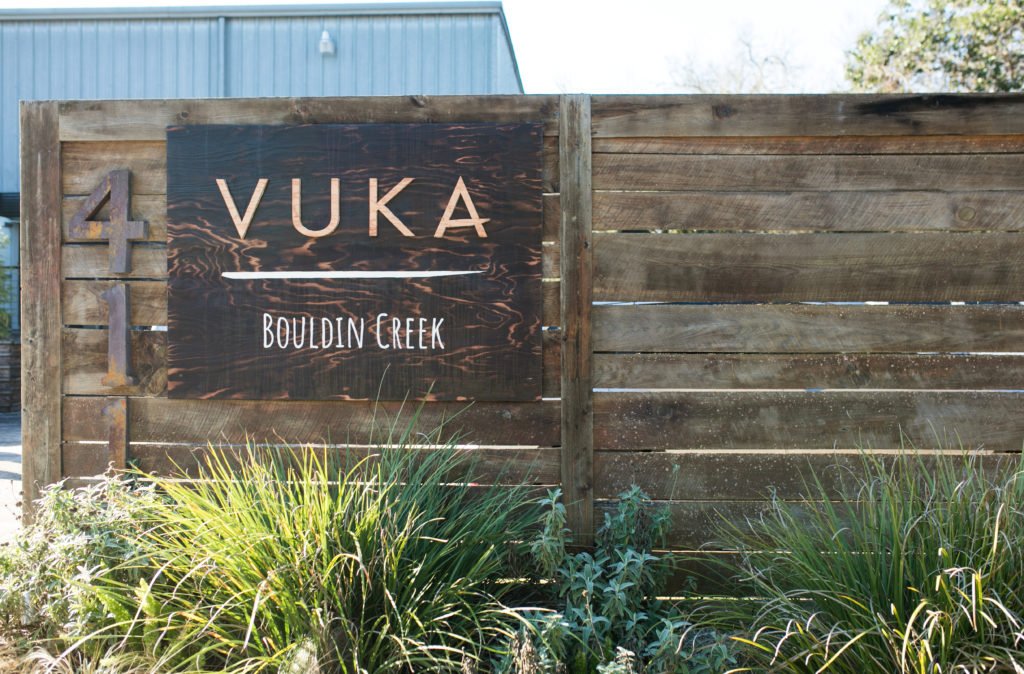What VUKA Learned Through Our Rebrand

Rebrand is a scary word. Instantly it translates to an endless amount of work, updating virtually everything from old to new. Print materials, websites, signs, talking points, oh my! It requires a lot of attention and detailed, consistent planning. Often companies find themselves wanting to rebrand without really knowing why it’s important. There’s an instinctual need to change, but it’s crucial to understand that need.
A rebrand can be used in a number of ways. It can happen in tandem with changing leadership. It can be in response to a growing startup. It can offer clarity to stakeholders on where you’ve been and what you plan to do in the future. Building a brand takes consistency and patience. And deciding to mix it up through rebranding can be a risky choice.
VUKA recently went through a rebrand that transitioned us back to our roots. We spent nearly a year working on crafting our brand story, clarifying our products and services, and understanding how our dynamic event workspaces serve our community.
And we learned (and are continuing to learn) some valuable lessons along the way.
Determining our “why”
For VUKA, our ‘why’ was simple; we had a family of brands that lived under VUKA, often overshadowing us the parent company. It was pertinent that we clarify our mission and vision by understanding the role these brands played.
We decided to sunset our Gather Venues brand because it was homegrown and sometimes contributed to a confusing relationship with VUKA. Questions we often received from clients were:
“Is Gather a part of VUKA, or do you have new owners?”
“Is VUKA off S. 1st and Gather off N. Lamar?”
“Has VUKA rebranded itself to Gather?”
“Is VUKA just an event space?”
After speaking with our team that directly meets with clients it was clear that VUKA was unclear. And we needed to change that. VUKA worked with branding experts to then hone in on what our mission, vision, and goals were for the company.
While we’ve kept our premiere event spaces, we knew that transitioning back to our roots as VUKA would offer more clarity to our stakeholders.
Honing in on our core focus
Since its inception, VUKA has always served the community. It began as a space to serve community organizations and quickly grew to offer premiere event space and coworking to Austinites. VUKA has always offered nonprofits and social enterprises below-market rates on our spaces.
Although we were known for supporting local organizations, it wasn’t always at the forefront of our marketing and communications. We decided to open a charitable foundation; which would ensure we could continue offering below-market rates to mission-driven organizations without it being a burden on our company.
Through the thoughtful process, we realized VUKA’s core focus is to create modern-day community hubs that foster connection and drive impact. By partnering with global companies like Impact Hub Network, we’re able to create robust community hubs and connect global movements locally. It was important to keep the partnership with Impact Hub Network because it allowed us to maximize our community impact through coworking and entrepreneurial support programs.
Reflecting on our company culture
Some folks put together branding committees that meet regularly, made up of key stakeholders and community leaders. For VUKA, it was important to learn the brand equity of our family of brands, and our client relations experts worked to ask our event clients and coworking members questions to obtain the necessary data to inform us.
We wanted to know how our members and clients correlated Impact Hub to VUKA and the same with Gather Venues. We got a pretty consistent answer of “we’re not 100% sure.”
And through this process, we were able to concisely communicate that VUKA partners with global and national brands like Impact Hub Global to offer global opportunities locally, here in ATX. Strategic partnerships like Impact Hub allow us to connect to something greater and allow for collaboration across sectors and continents. This allows us to keep innovation at the forefront of our workspaces entrepreneurial support programs.
While we were a small company, we had team members virtually working for different brands under one umbrella. While there were arguments on why this made sense, ultimately we noticed the strain it had on our company culture. By having teammates working against each other instead of alongside each other, there was a risk for misunderstanding on each side.
The rebrand had to assure teammates that we all wanted the same thing: a successful, impactful business.
Timing is everything.
Sunsetting a brand, re-launching our roots, and changing our communications to be concise and clear is tricky. There are a lot of moving parts that happen on launch day.
Everyone on the team needs to be prepared for launch day — even if it barely affects them. It’s important to know that things can get a little wonky and when they do, we have a plan for that.
For VUKA, our biggest concern with a website transition was to keep the consistent amount of sales leads we had coming in. We did not want our rebrand process to impede our sales goals; so it was crucial to transition the site seamlessly while maintaining consistency for our sales team.
We decided to launch in a very particular order. We released our press release under embargo, so the media and reporters could contact us and plan the stories prior to launch day. (BTW, did you see us in the Statesman?) We transitioned our website in the wee hours of the morning, so when the morning hit we were able to move forward easily through our punch list of items like updating our social accounts and sending out necessary communications to our community.
—
Having a detailed plan during your rebrand is crucial to its success. It’s important to have your team on board and prepared for what will happen during the transition. Every brand transition is another interaction with stakeholders that define who you are as a business.
Questions or comments about VUKA’s recent rebrand? We’d love to know!

